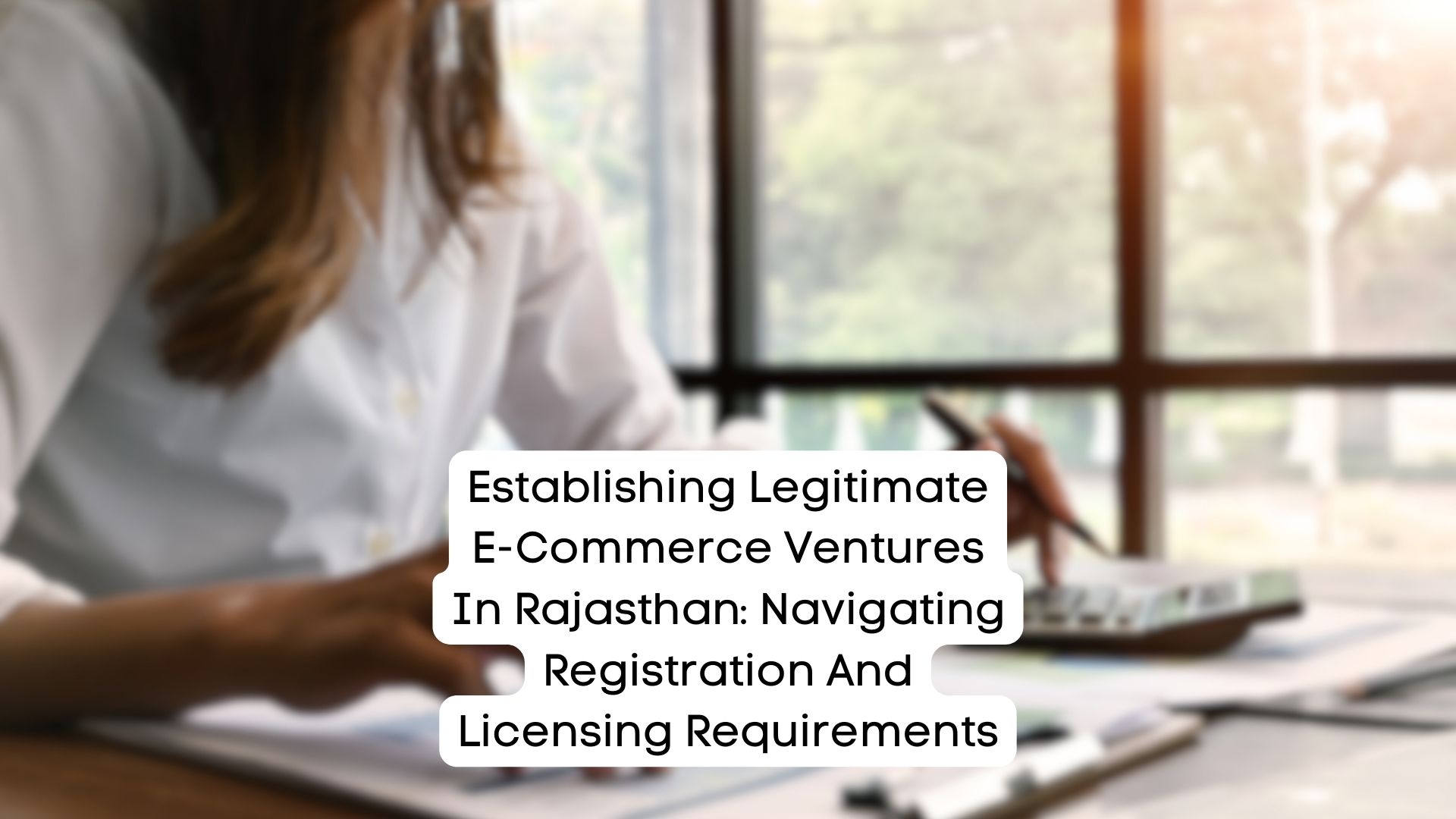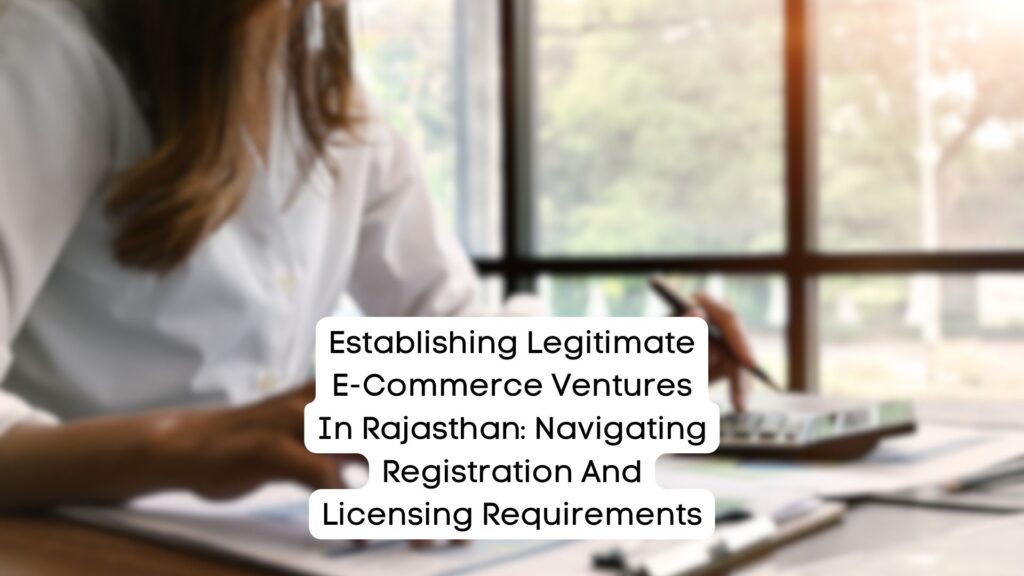
20 Feb Establishing Legitimate E-commerce Ventures in Rajasthan: Navigating Registration and Licensing Requirements

Launching an e-commerce enterprise in Rajasthan presents both opportunities and challenges. Understanding the significance of registration and licensing is paramount for establishing a legitimate and prosperous online business. Rajasthan’s flourishing e-commerce sector amidst its rich cultural heritage necessitates adherence to legal requirements, laying the groundwork for sustainable success. By delving into the registration process and obtaining requisite licenses, e-commerce ventures can unlock a plethora of advantages, ensuring compliance and longevity in the market.
Introduction to E-commerce Ventures
E-commerce encompasses the online trade of goods and services, a phenomenon that has gained remarkable traction in Rajasthan. The state’s vibrant markets and cultural tapestry have seamlessly integrated into the digital realm, offering consumers a diverse array of products and services at their fingertips. From fashion to groceries, e-commerce platforms have revolutionized shopping experiences, catering specifically to Rajasthan’s discerning clientele.
Navigating Business Registration: A Comprehensive Guide
Commencing an e-commerce venture in Rajasthan demands meticulous attention to registration procedures and legal protocols. Understanding the various business entity options is crucial:
- Sole Proprietorship: Owned and operated by a single individual, bearing personal liability for business obligations.
- Partnership: Formed by multiple individuals sharing profits and liabilities jointly.
- Limited Liability Partnership (LLP): Combines partnership benefits with limited liability protection.
- Private Limited Company: A separate legal entity with limited liability for shareholders.
Registering a Company in Rajasthan: Step-by-Step Process
Registering a company in Rajasthan involves several sequential steps:
- Obtain Digital Signature Certificate (DSC) and Director Identification Number (DIN) for proposed directors.
- Apply for name availability via the Ministry of Corporate Affairs (MCA) portal.
- Draft Memorandum of Association (MOA) and Articles of Association (AOA) delineating company objectives and regulations.
- File incorporation application with the Registrar of Companies (ROC) in Rajasthan.
- Fulfill requisite fees and stamp duty obligations.
- Upon verification and approval, receive the Certificate of Incorporation from the ROC.
Essential Documentation and Fees
To register a company in Rajasthan, the following documents are typically required:
- Identity and address proofs of directors/partners/shareholders.
- Proof of registered office address.
- Passport-sized photographs of directors/partners/shareholders.
- MOA and AOA of the company.
GST Registration: Ensuring Tax Compliance
Understanding Goods and Services Tax (GST) registration is imperative for e-commerce enterprises in Rajasthan. It offers various benefits, including:
- Legal compliance with tax laws.
- Facilitation of input tax credit.
- Mandated for interstate transactions.
- Enhancing business credibility.
Process of Obtaining GST Registration
The process entails:
- Online application submission via the GST portal.
- Verification by GST authorities.
- Allocation of unique GST Identification Number (GSTIN).
Key Documents Required for GST Registration
Essential documents include:
- PAN Card of the business entity or directors/partners.
- Identity and address proofs of directors/partners.
- Bank account details.
- Business registration documents.
Licensing and Permits for E-commerce Enterprises
Operating an e-commerce business in Rajasthan necessitates securing pertinent licenses and permits to ensure legal compliance and customer trust.
Trade License: Essential for business operation within a specific jurisdiction, ensuring compliance with safety standards.
Shop Establishment License: Mandatory for commercial establishments, regulating working conditions and hygiene standards.
FSSAI License: Crucial for e-commerce businesses dealing with food products, ensuring compliance with food safety regulations.
Legal Compliance and Intellectual Property Protection
Upholding legal compliance extends to intellectual property rights protection and formulation of clear policies:
- Trademark registration safeguards brand identity and market differentiation.
- Privacy policy and terms of service foster transparency, build customer trust, and ensure data protection compliance.
Conclusion
In summary, launching an e-commerce venture in Rajasthan requires meticulous attention to registration, licensing, and legal compliance. By adhering to these prerequisites, entrepreneurs can establish a robust foundation, navigate regulatory landscapes, and foster a reputable online presence amidst stiff competition.


No Comments